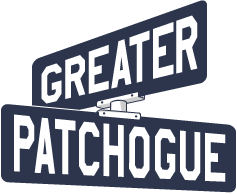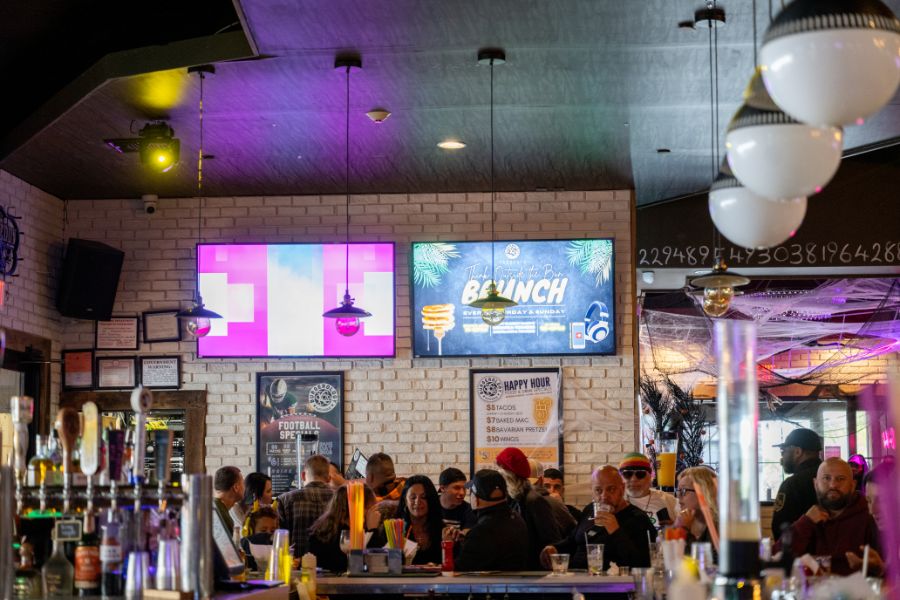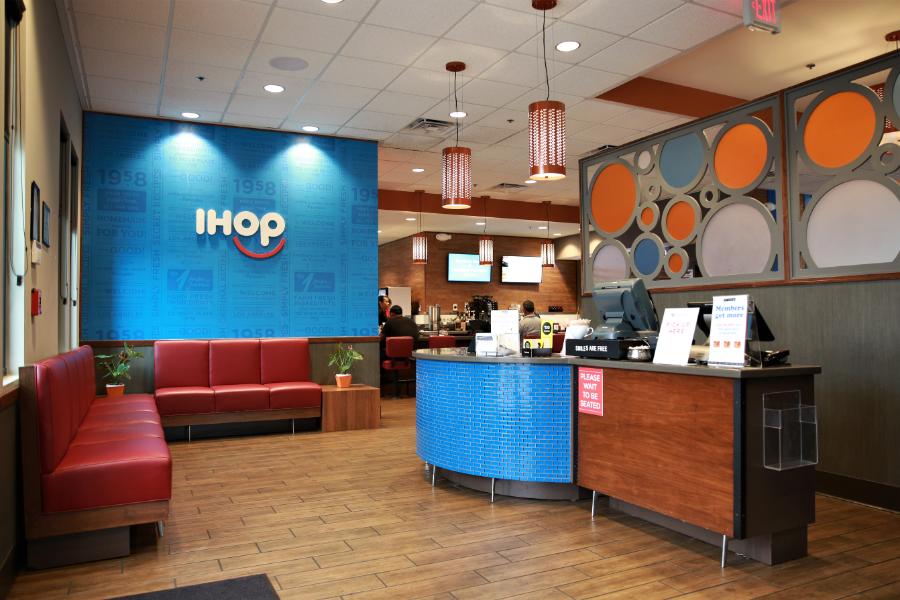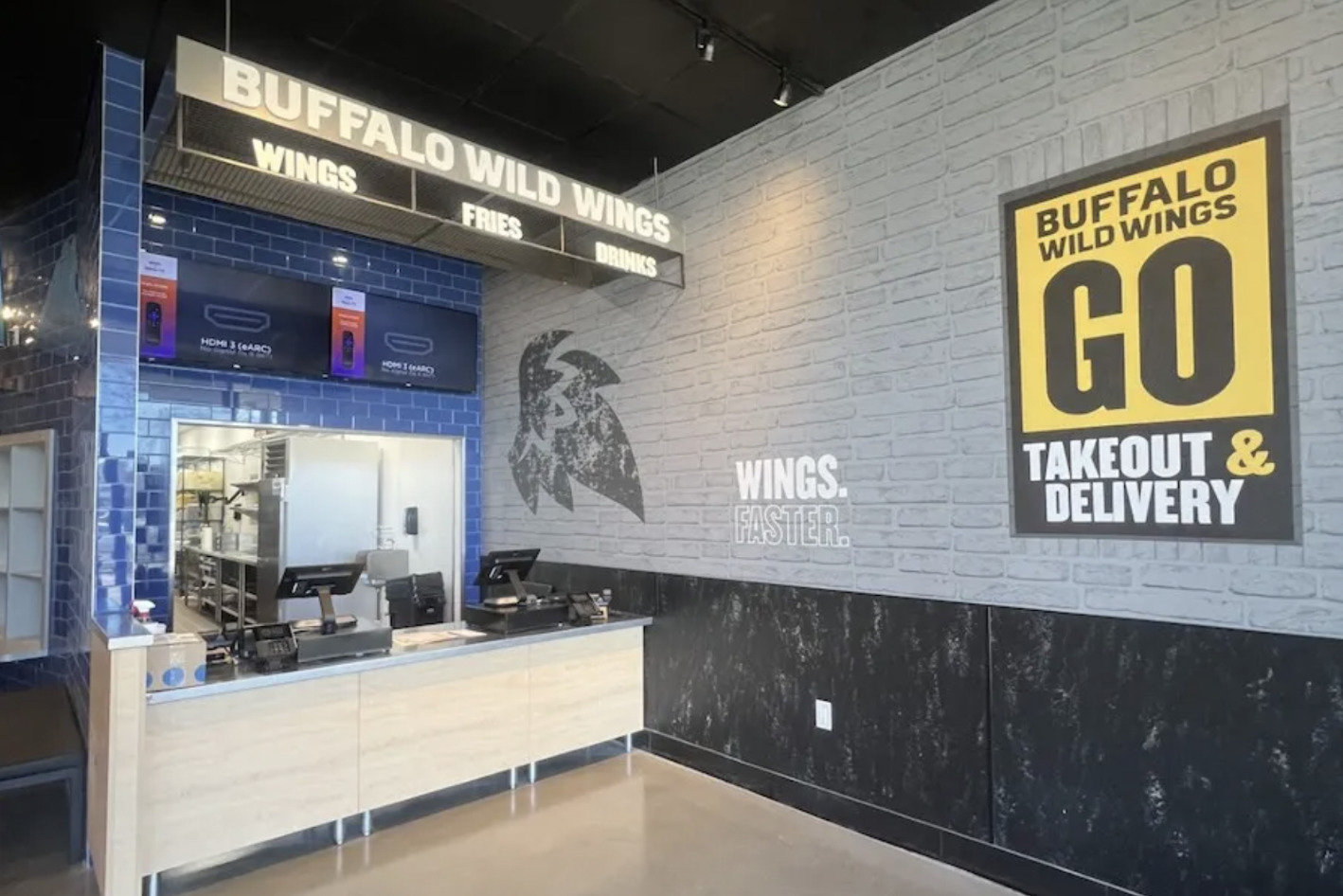A craft distillery that would use New York State farm products to make vodka, gin, whiskey and bourbon is being planned for a former mechanic’s shop in Patchogue Village.
The company, called Great South Bay Distillery, is looking to rehab and convert the vacant building at 147 West Avenue, which most recently housed Pat Felice’s Auto, to distill the spirits.
The distillery — its name has yet been disclosed — would feature a tasting room with a small kitchen for complementary food offerings and indoor and outdoor seating.
Tasting room guests would sample the spirits straight, or purchase mixed cocktails.
That’s all according to the business’ partners, Anthony and Laurie Gruppuso of Bayport, who are a husband-and-wife team that’s in contract to purchase 147 West Avenue. That purchase is contingent upon Great South Bay acquiring all its necessary approvals to move forward with the project.
“The way we envision it, people would come to the distillery as a destination, maybe on their way to the ferries. They would come in, have a cocktail, buy a bottle and go have fun for the weekend [on Fire Island],” Anthony Gruppuso told greaterpatchogue.com.
“Or come visit us, buy some product and go out and have dinner and see a show,” he added.
The distillery application was before the Patchogue Village Planning Board Tuesday evening, though it was tabled for additional clarifications on its plans with respect to exterior lighting, buffers, fencing, and other details.
The Great South Bay application will be back before the village in late March.
“And, hopefully, we’ll be able to close the public hearing and render a decision — unless something monumental comes up,” said the village Planning Board’s chairman, John Rocco.
147 West Avenue is located on the western edge of a residential neighborhood. It’s just south of Kappler’s Bar and across the street from Bowl Long Island. (Map below.)
The village Planning Board’s concern is making sure the distillery doesn’t have any negative impact on the neighbors, and to accomplish this would impose restrictions on the operation.
But one Amity Street property owner who spoke publicly, Neil Starkman of Patchogue, told the Planning Board he wished to protect his longtime tenants’ quality of life there — as well as his investment in the house, which is across the street.
Above all, he expressed concern that the village doesn’t follow through with enforcement after it approves and sets the parameters for how a given business can operate in the village.
“We don’t know what this is going to morph into,” Starkman said. “The village seems to have a problem enforcing stipulations that are put in place by these types of agreements, or applications.”
“We start with one thing, these business grow, and we appreciate that, but at the same time there’s no follow-up and there’s no enforcement,” he continued. “And now we’re having another bar and restaurant directly across from my house, and I see that as being a problem.”
Starkman pointed to Blue Point Brewery, which he described as starting as a small, quiet tasting room before later turning into a daily public operation with music festivals in the backyard.
Gruppuso responded that he has no intentions of running anything other than a destination distillery — as he works to grow the company’s brand beyond Patchogue Village.
“if I wanted to run a neighborhood bar, I would find a location closer to Main Street where I can get foot traffic in all day,” he said. “Our plan here is to build a brand, and make a destination.”
He also repeatedly assured the Planning Board and the public that no odors would emanate from the building, as the spirits are distilled in a closed system with no exhaust or waste.
Responding to a question from Rocco, Gruppuso also said any concern over the still exploding would be unfounded.
“We’re dealing with some steam pressure here; that’s all,” he said.
The first step in the project would be to acquire the building, then start work on aesthetic improvements that would include a brick facade with synthetic limestone for a 1940s-era industrial look
Vodka and gin would be offered first, since those spirits only take a week and two weeks to distill.
Whiskey takes at least 16 months and bourbon at least four months, he said.
The distillery would self-distribute to local bars, restaurants and liquor stores. And, under its farm license, would be required to use 75 percent of products grown in New York State. He said this helps farmers during the traditional non-growing season by being able to market a crop like winter wheat.
Perhaps because of this reason, most of the distilleries that have been established in the state and county have been in more rural locations, such as Sound Avenue in Riverhead.
“This would be the first craft distillery in an urban environment on Long Island,” Grupposo told greaterpatchogue.com. “What Patchogue Village has done under its current administration is actually the picture perfect example of urban renewal, and we really want to be part of the resurgence.
“I couldn’t imagine doing this project anywhere but the Village of Patchogue.”
The artist’s rendering appears courtesy of Great South Bay Distillery.























